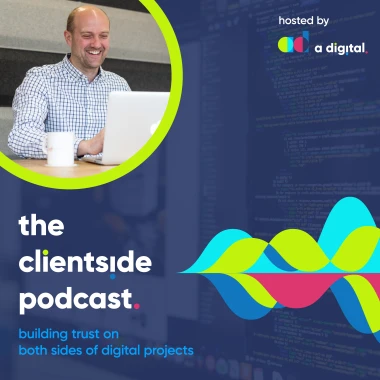
Paid Search with Dean Duffield
The Clientside Podcast
A Digital's paid search expert Dean Duffield joins Andrew Armitage to talk about planning and preparing for a paid search campaign.
There's little point in simply setting up a few ads and giving Google some budget - the results will likely be disappointing.
In this episode, we'll talk about the planning and preparation needed before you start a paid search campaign and why it's not as straightforwards as turning on a tap o qualified leads.
Listen on your smart device or read the transcript below
With [paid] search, what you're able to do is put your message out at the point where there's intent [from the user].
Dean Duffield Tweet